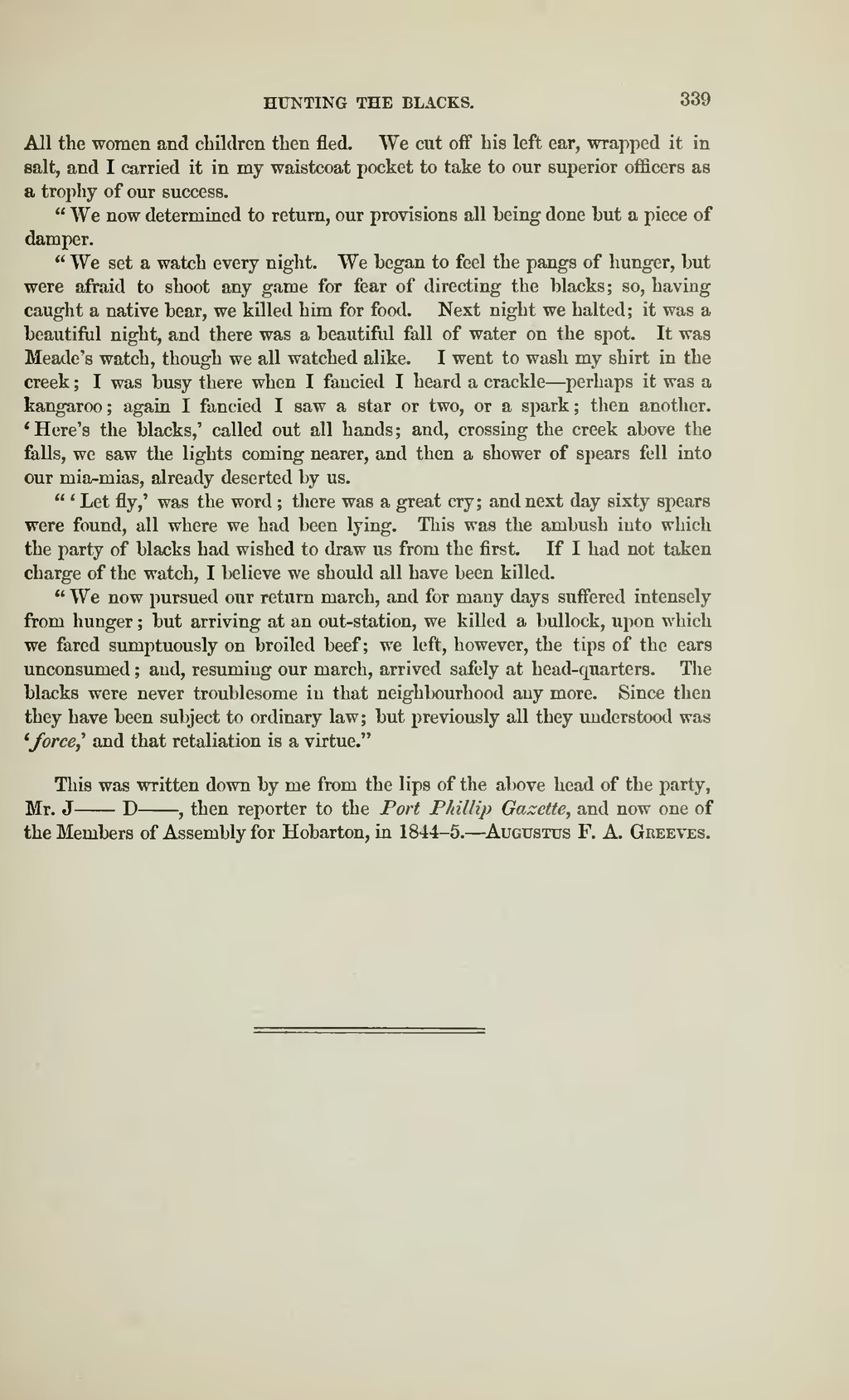All the women and children then fled. We cut off his left ear, wrapped it in salt, and I carried it in my waistcoat pocket to take to our superior officers as a trophy of our success.
"We now determined to return, our provisions all being done but a piece of damper.
"We set a watch every night. We began to feel the pangs of hunger, but were afraid to shoot any game for fear of directing the blacks; so, having caught a native bear, we killed him for food. Next night we halted; it was a beautiful night, and there was a beautiful fall of water on the spot. It was Meade's watch, though we all watched alike. I went to wash my shirt in the creek; I was busy there when I fancied I heard a crackle—perhaps it was a kangaroo; again I fancied I saw a star or two, or a spark; then another. 'Here's the blacks,' called out all hands; and, crossing the creek above the falls, we saw the lights coming nearer, and then a shower of spears fell into our mia-mias, already deserted by us.
"'Let fly,' was the word; there was a great cry; and next day sixty spears were found, all where we had been lying. This was the ambush into which the party of blacks had wished to draw us from the first. If I had not taken charge of the watch, I believe we should all have been killed.
"We now pursued our return march, and for many days suffered intensely from hunger; but arriving at an out-station, we killed a bullock, upon which we fared sumptuously on broiled beef; we left, however, the tips of the ears unconsumed; and, resuming our march, arrived safely at head-quarters. The blacks were never troublesome in that neighbourhood any more. Since then they have been subject to ordinary law; but previously all they understood was 'force,' and that retaliation is a virtue."
This was written down by me from the lips of the above head of the party, Mr. J—— D—— , then reporter to the Port Phillip Gazette, and now one of the Members of Assembly for Hobarton, in 1844-5.—Augustus F. A. Greeves.
